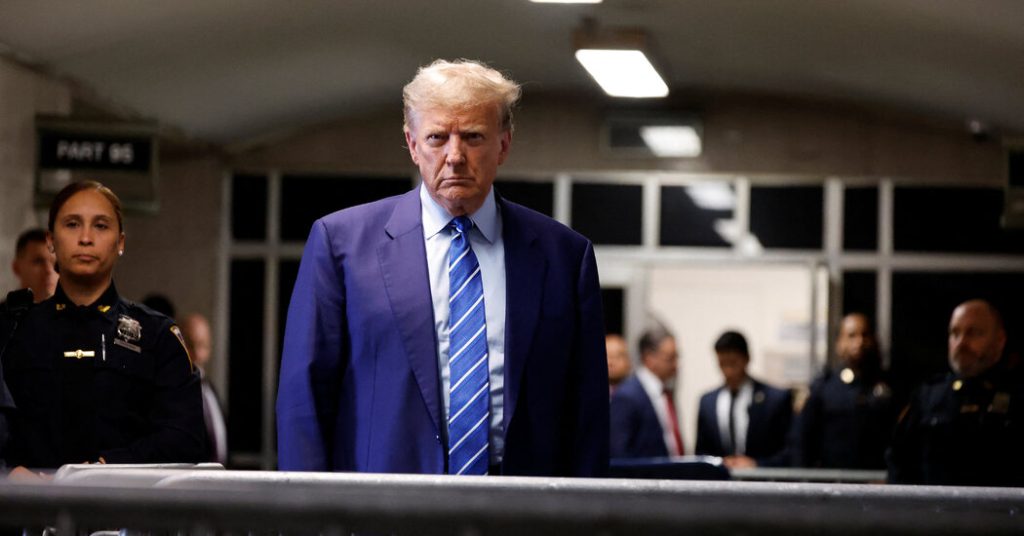Jury selection for the first criminal trial of an American president, Donald J. Trump, continued for a third day as lawyers worked to choose the panel that will decide his fate. The case against Mr. Trump centers around a hush-money payment to porn star Stormy Daniels during the 2016 campaign, with prosecutors alleging that he concealed her story and others to influence the election. Mr. Trump has denied the allegations and faces 34 felony counts, with a potential four-year prison sentence if convicted. Despite expectations of a lengthy selection process, seven jurors were seated on the second day, reflecting the diverse makeup of the city they were drawn from and bringing the trial closer to opening arguments.
The court order to withhold the identities of the jurors highlights the potential risks to their safety in a case involving such a polarizing figure as Mr. Trump. The defense team is heavily focused on gauging prospective jurors’ opinions of the former president, with questions about fairness and impartiality at the core of the jury selection process. Before being questioned by the lawyers, potential jurors must respond to a series of 42 inquiries, ranging from their neighborhood and marital status to their media consumption habits and attendance at Trump rallies. The difficulty of maintaining anonymity for the jurors in a case under intense media scrutiny is evident, as some have inadvertently revealed information that could identify them.
Prosecutors on the trial’s second day questioned potential jurors on topics such as the rule of law, flawed witnesses, and complicity in crimes, while the defense team continuously probed their opinions of President Trump. The slow but steady pace of juror selection suggests that opening arguments may commence on Monday, if jurors continue to be seated at the current rate. As the attorneys move from selecting the 12 main jurors to choosing several alternates in case of illness or absence, the focus remains on ensuring a fair and impartial panel to decide the outcome of the trial.
Justice Merchan’s order to keep the jurors’ identities confidential underscores the need for caution in a case involving a controversial and divisive figure like Mr. Trump. The potential risks to the safety of the jurors are significant, given the intense media attention and public scrutiny of the trial. The laborious process of jury selection, with a heavy emphasis on fairness and impartiality, reflects the high stakes and complexities of a case involving a former president facing multiple felony charges. The selection of alternates continues as the attorneys work toward finalizing the panel that will determine Mr. Trump’s fate.
The unique challenges of selecting a jury for a trial of this nature, combined with the heightened security concerns and media attention, create a complex and potentially volatile environment for potential jurors. The defense team’s focus on prospective jurors’ opinions of President Trump, as well as questions about fairness and impartiality, highlights the central role of these factors in determining the makeup of the jury. Despite the difficulties of maintaining anonymity and ensuring the safety of the jurors, the selection process continues as the trial approaches opening arguments. The ongoing efforts to select a fair and impartial panel, amidst the intense scrutiny and pressures of a high-profile case involving a former president, underscore the complexities and importance of the jury selection process in ensuring a fair trial for all parties involved.


